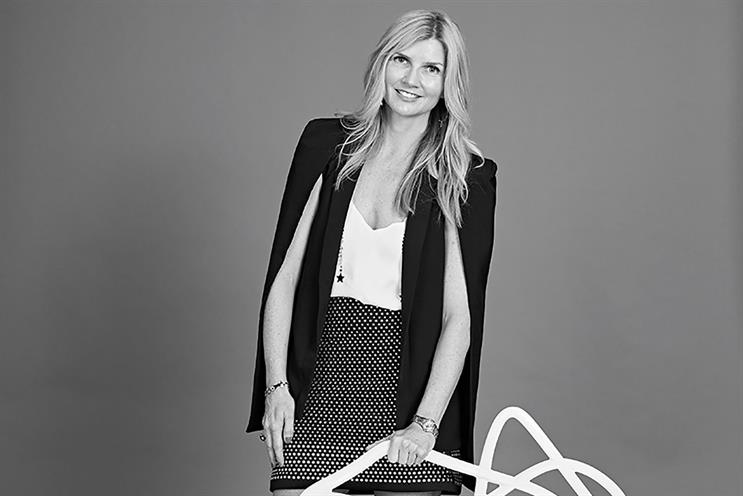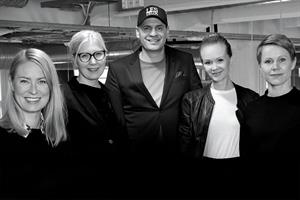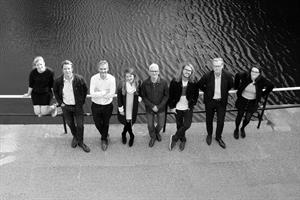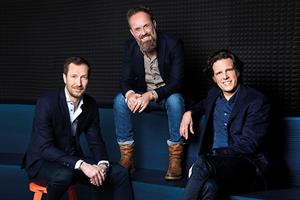
And yet it occurs to me, an unashamed lover of the elegant use of words, that we’ve gone all Sodom and Gomorrah on ourselves when it comes to the wide acceptance of ‘potty mouth’ syndrome.
I’m not going to lie, I enjoy dropping the odd f-bomb here and there as much as the next person. Frankly, sometimes a sentence just needs a good expletive to be complete. Yet it seems like the ubiquity of foul language – think rap songs, YouTubers, gamers, Instagrammers – has rendered it ‘normal’ when really, it shouldn’t be. I have to contend with my 10-year-old using f*ck as his favourite all-in word – adjective, verb or noun – flexible in application according to the circumstances.
What does all this have to do with creating amazing ads in 2019?
If we’re exposed to something often enough, no matter how offensive it is, it will eventually become ‘the norm’ and lose its impact. So rather than constantly trying to one-up the shock value (which seems to be the thing these days, especially on social media – more intimate, more real, more sexy, more confronting), we play a different game at DDI.
There’s a lot of overcomplication that our industry is guilty of. Think of all those yawn-worthy 100-page PowerPoint decks constructed to justify a hefty fee. This is a legacy problem we have to own because we’ve created it for ourselves.
At DDI, we tend to apply the principle that the best solutions are always elegant in their simplicity.
This is as much a life philosophy as it is an advertising one.
Whenever overwhelm threatens, it’s always a reconnection to the simple things that ultimately paves the way to a happier place.
Like a call from a girlfriend who’s just struck gold on Bumble (at laaaasssst!).
Simplicity isn’t easy
All too often this is misunderstood as ‘Let’s just keep things simple’ – as in: ‘Let’s just say what we said last time, or say what people expect we’re going to say.’
That’s not what we mean by ‘simplicity’ at DDI. To us, simplicity means not taking the easy road. It’s about finding the most unaffected, pure and human way of framing something. Forcing ourselves to forge the shortest path between any two points.
Common sense is underrated
I’m a believer in what’s often seen these days as the ‘quaint’ view that advertising is best when it doesn’t require a detailed rationale, an exhaustive recap of the line of thinking, or a heavy-handed explanation.
Sometimes in life, you just know. No rigour or unpacking required. You feel it in your bones. Much like the quotable quote that says, "We have so much data coming at us these days, we’ve lost the ability to use our common sense."
It’s not that we don’t understand the new environment in which we operate, where dashboards abound and sophisticated tech underpins virtually every business decision. It’s just that in our view there is still no hard science behind what makes great ideas, well… great.
This isn’t a case of painting by numbers. When it comes to conceptual greatness, there is always a leap of faith involved, even when backed by the most robust quantifications money can buy.
Here’s what I think should be taught to those gung-ho graduates at top-tier companies around the world: Yes, know the numbers. Absolutely, be guided by them. But always, always, trust your gut.
And for those who may feel they need irrefutable evidence of this, just take a look at the stats on chief executives. Of 400 celebrated CEOs from the 1970s to 2016, those with MBAs performed significantly worse than those without.*
Trust your gut, above all else
This is the one essential life skill that I’m attempting to teach my kids: "If it feels funny in your tummy, then you’ll know it’s not quite right."
It’s this and only this, that will ever lead to the creation, nurturing and preservation of great work.
At the end of the day, that’s why we’re all really doing this job, right? Because if we’d signed up for a vanilla life, we wouldn’t be reading this magazine.
At a glance...
Founded Founded 1987. Way before hanging out in cafés was a thing, we always had the world’s best coffee machine... and Italian coffee beans. It’s been a drawcard for our clients, and a mark of how we take care of them.
Principals Bernd Winter, founder and executive creative director (a German who fell in love with an Aussie and never left); Caroline McLaughlin, managing director (a Saffa who chases the sun)
Staff 17 humans, one dog
Location Location Sydney, Australia
Mantra The Art of Being Noticed
Q+A
What’s the best work you’ve seen in the past 12 months?
Evert 45. Enchanting scripting, brilliant casting and remarkable, filmic attention to detail. It’s no surprise Dutch Telecom immersed a new generation in the ‘dry’ topic of World War II. It’s also my best use of Voice, so rich it moves beyond fiction as Evert is rendered ‘real’ in social media.
What will make the biggest impact on your agency this year?
The zeitgeist for agencies is compelling, a space of mash-ups and seemingly contradictory collaborations. It’s raw, rich and unexpected – and we’re leaping into that space to experiment and play with the unexplored potential it offers.
How can agencies keep great people?
To quote Gary Noesner, ex-FBI chief hostage negotiator: "Listening is the cheapest concession you can make." Applying this is how agencies can keep good people and retain great clients. You just have to shut up and listen, and people will tell you all you need to know.
Caroline McLaughlin is managing director at DDI Australia










